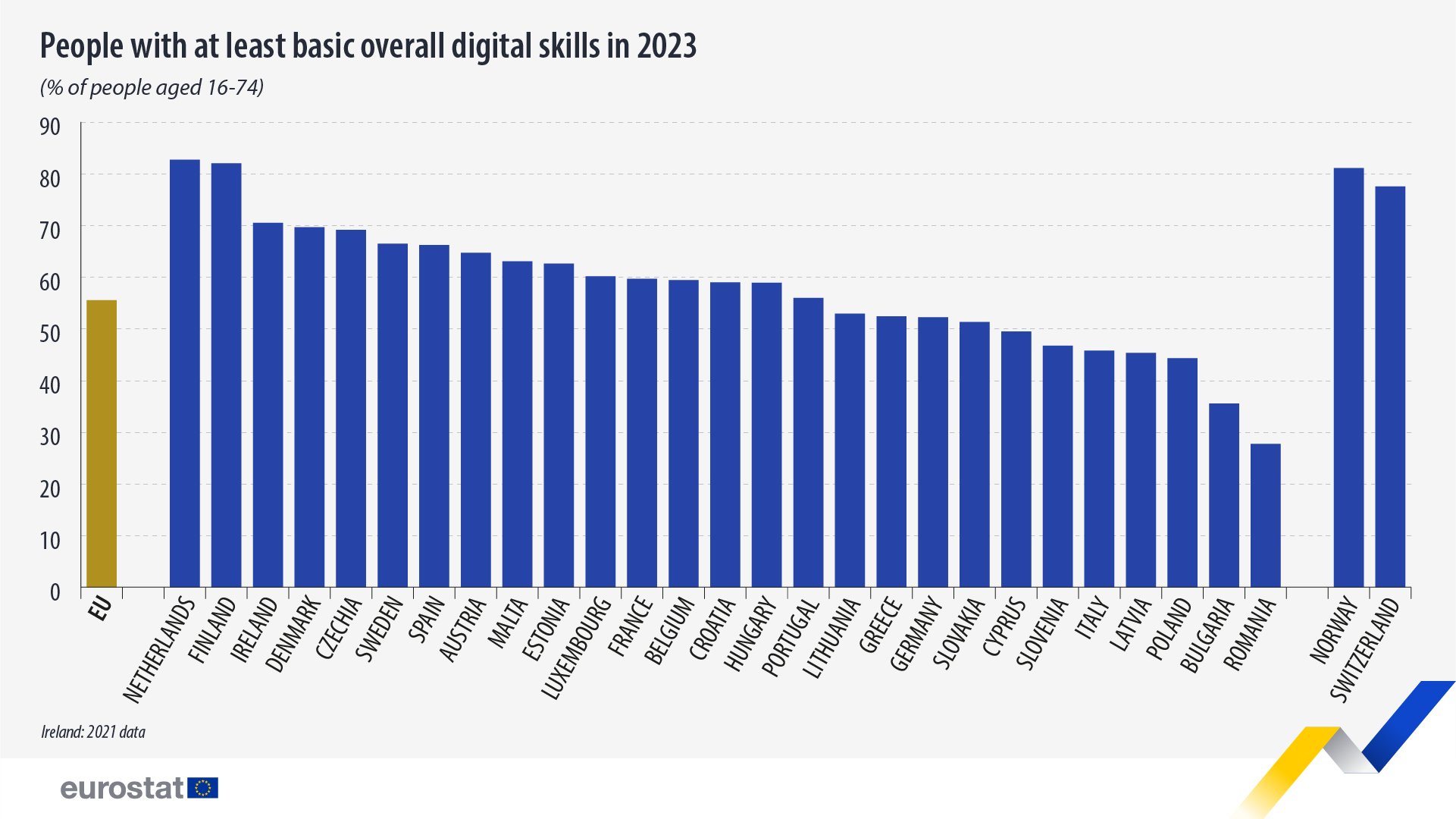Basic digital skills on the rise in the EU!

Eurostat, the statistical office of the European Union, published a report on digital skills in the EU. Serving the objectives of the Digital Decade and of the European Year of Skills, these statistics highlight that in 2023 a little less than 56% of people in the EU aged 16 to 74 had (at least) basic overall digital skills. This represents a sight increase since 2021 when a little less than 54% of EU people had at least basic digital skills.
But how does Eurostat define “digital skills”? Digital skills refer to five areas: information and data literacy skills, communication and collaboration skills, digital content creation skills, safety skills and problem-solving skills in a digital environment. To be considered as possessing digital skills, an individual has to know how to perform at least one activity related to each area.
What countries fare better? The Netherlands (83%) and Finland (82%) stand out as the countries where the highest percentages were reported, followed by Denmark (70%). Conversely, the lowest shares were recorded in Romania (28%), Bulgaria (36%) and Poland (44%).

These data show steady progress in the digital skills indicator, one of the key performance indicators for the Digital Decade, whose target for 2030 is 80% of EU people with basic digital skills.





Digitālo pamatprasmju līmenis
Kā liecina Baibas Brusbārdes raksts (https://www.makroekonomika.lv/raksti/digitala-nevienlidziba-latvija-cik-butiska-un-vai-mazinas ) Latvijas iedzivotāju digitālās prasmes ir zemes un motivācijas tās pilnveidot - zema. Gandrīz pusei (49%) Latvijas iedzivotāju nav digitālo pamatprasmju - tās ir tikai 51 % Latvijas iedzīvotāju. Šis rādītājs nesasniedz ES vidējo. Progress ir lēns. Jāmin, ka digitālo pamatprasmju trūkums traucē virzīt digitālo attīstību uzņēmējdarbību un valsts pakalpojumu jomā. Piemēram - Latvijā ir ļoti pensijas vecuma cilvēki, kuri pensiju vēljoprojām saņem ar pasta pakalpojumu starpniecību! Tiem nav bankas konta un nav ne mazākās izpratnes par internetbanku. Tikpat nevienlīdzīgi ir digitālo pamatprasmu pasniegšanu mācību iestādēs - daļā to pasniedz jau no pirmās klases, citās - no trešās, ceturtās..